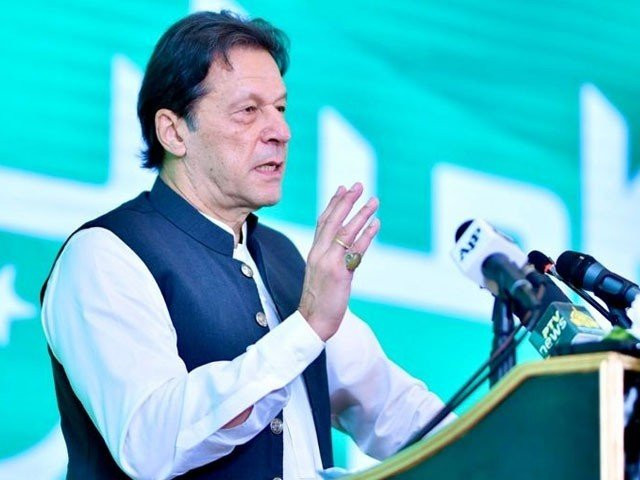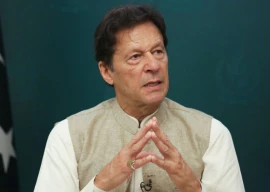
Three years on, Prime Minister Imran Khan is still looking for “out-of-the-box solutions” to control smuggling and money laundering despite holding meetings for the prevention of the twin menaces since assuming office in 2018.
On August 27, 2018, less than 10 days after his swearing-in ceremony, Interior Secretary Yousaf Naseem Khokhar had briefed the prime minister about the steps taken to prevent smuggling, among other things.
Within a week, on September 3, 2018, the then commerce secretary and the Federal Board of Revenue (FBR) officials also gave the prime minister a detailed briefing on the damages caused to the national economy as a result of smuggling and money laundering.
From pre-exploratory to exploratory meetings in the last three years, Prime Minister Imran Khan chaired yet another meeting on Wednesday to review the anti-smuggling and anti-money-laundering measures, which ended on seeking a viable solution to the problem.
A statement issued by the Prime Minister’s Office after the meeting reiterated that the cost of smuggling bore heavily on the country’s economic stability and different solutions were needed to combat the issue.
Suggesting that the previous solutions didn’t work effectively, Imran directed that “all stakeholders should undertake emergency measures and bring-out-of-the-box solutions to control smuggling of essential commodities”.
READ Imran Khan’s master class on civilian supremacy
He direct the authorities concerned that “emergency measures must be taken to control smuggling of wheat, urea, sugar, flour, petrol and money-laundering.” Imran told the participants that smuggling creates artificial shortage of commodities and ultimately results in price hike.
“Heavy damage is inflicted on economy of the country due to smuggling of food commodities due to price differential,” Imran said. He emphasised that the objective was to provide relief to the common man against price hike.
Without sharing much detail, the Prime Minister’s Office statement read that the meeting was informed that the Federal Investigation Agency (FIA) had undertaken extensive investigations against illegal money laundering and holding of US dollars.
The statement revealed that the manpower was now being increased at border crossings to check goods and to ensure that each load was recorded for tracking purposes. It added that the meeting was briefed that significant success has been achieved to control illegal petrol smuggling and operations against hoarders.
The meeting was attended by federal ministers Sheikh Rashid, Hammad Azhar, Khusro Bakhtiar, Fakhar Imam, Asad Umar, Adviser to Prime Minister Shaukat Tarin and Razak Dawood, Special Assistant Dr Shehbaz Gill, State Bank of Pakistan (SBP) governor, FBR Chairman and senior civil and military officers.
CPEC projects
Separately, chairing another meeting to review the China-Pakistan Economic Corridor (CPEC) projects Imran reiterated the government’s commitment to the provisions of CPEC agreements and directed that the timelines specified for the completion of the projects must be adhered to.
Imran highlighted that the continuity of policies was essential for long-term projects in order to achieve maximum benefits for the country. He stressed that the government accorded high priority to the operationalisation of CPEC projects.
Meanwhile, Prime Minister Imran appreciated the Federal Board of Revenue (FBR) on achieving an increase of 35% in revenues in the month of November 2021 over the same period a year ago.
“Congratulations to the FBR team for achieving a 35% increase in revenues in November over last year,” he said in a tweet. He also mentioned a 37% increase in.
The FBR said on Tuesday it had registered a “historic growth” of 36.5% in revenue collection between July and November period. It collected net revenues of Rs 2,314 billion during the first five months of the current fiscal year against a target of Rs 2,016 billion, exceeding it by Rs.298 billion.
(WITH INPUT FROM APP)



1732266251-0/Josh-Brolin-(1)1732266251-0-165x106.webp)
1732266343-0/BeFunky-collage-(82)1732266343-0-165x106.webp)

1732268955-0/BeFunk_§_]__-(33)1732268955-0.jpg)

1732263788-0/BeFunk_§_]__-(30)1732263788-0.jpg)
1732267954-0/Express-Tribune-(6)1732267954-0-270x192.webp)










COMMENTS (2)
Comments are moderated and generally will be posted if they are on-topic and not abusive.
For more information, please see our Comments FAQ